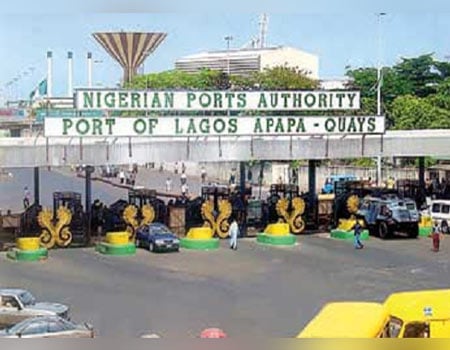With the commencement of a mega port in Lekki, fears are rife that the ports in Apapa and Tin-Can could be wiped out due to the mega structures and cost-effective options that Lekki port will bring for importers.
Originally slated for completion in 2012, the Lekki Port, which is located within the privately-owned Lagos Free Trade Zone located in Lekki, approximately covers 60 kilometre east of the city of Lagos, even as the first phase of the development of the site covers 218 hectares while the second phase is proposed to cover 1,275 hectares. The Lekki port is designed to have a final draft of 16.5 metres and accordingly will be able to accommodate large container vessels with a capacity of about 8,500 Twenty Equivalent Units (TEUs), which is not obtainable in Apapa or Tin-Can ports.
The Lekki deep seaport, which is expected to commence operations in 2018, is expected to handle bulk and liquid commodities and tankers up to 160,000 DWT due to its deeper draft.
For Mr Emeka Chidiebere, a clearing agent and port user, the plan is for Lekki to decongest Apapa and Tin-Can ports; but the new port might not only decongest those two ports, but also de-market them in the long run. ‘‘Apapa, the deepest draft is 13.5metres. Now we are talking of a port with 16.5metres, importers might decide to channel all their cargoes there because a deeper draft assures a cheaper cargo evacuation process.
“The new deep seaport will have a lot of economy of large scale over and above other seaports in Lagos, since it will handle large vessels, which would mean that importers and other port users may switch over to the port with the attendant low cost of operation.
‘‘If this happens, concessionaires who have invested heavily in Apapa and Tin-Can ports might have problems attracting cargoes to their ports. And if there is a drop in vessel call at those ports, their finances could get eroded so fast, leading to massive lay off and underutilisation of their capital intensive equipment that have been bought over the concession period.”
In the words of another clearing agent, Osita Chukwu Patrick, “the commencement of Lekki port will bring about competition for port usage. This will on the long run crash port charges because importers will have more options on which port to use as destination for their cargoes.”
The Lekki port equity stakes currently stands at 18.5 per cent for the Lagos State Government, 20 per cent to the NPA representing the Federal Government, while the private consortium of investors led by the Tolaram Group holds the remaining 61.8 per cent.




